News
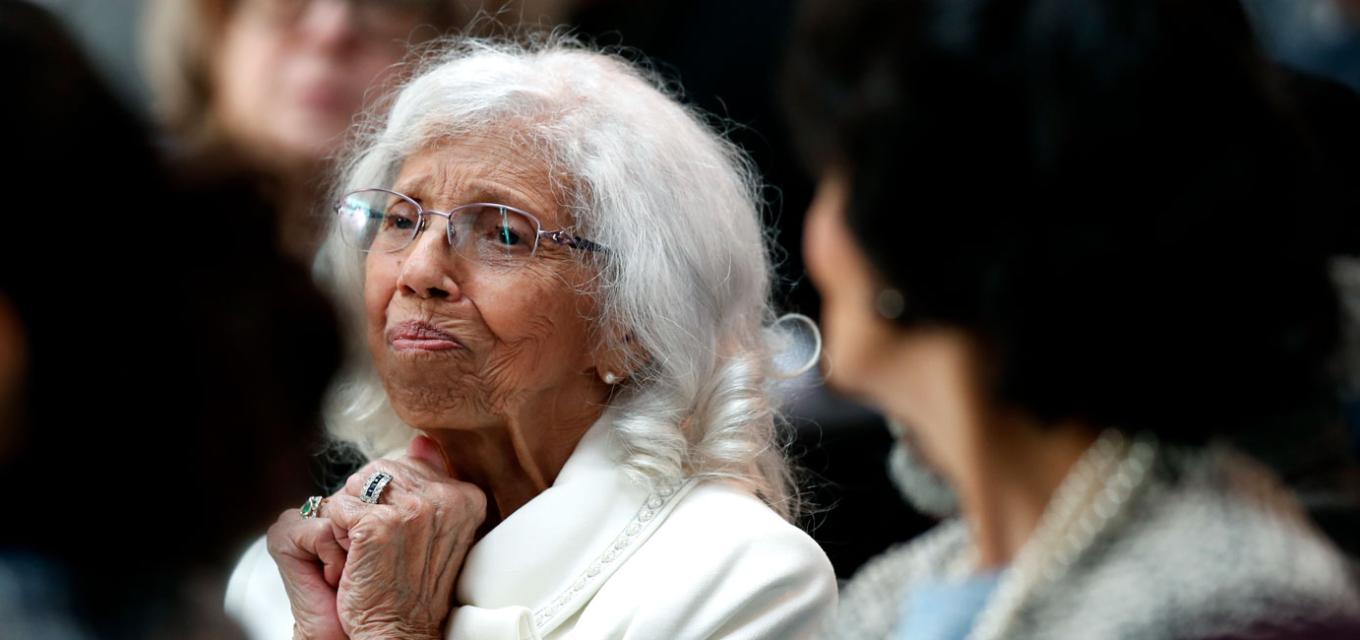
Minnesota’s first lady of civil rights
Honoring Dr. Josie R. Johnson’s U of M legacy.
By the time she arrived at the University of Minnesota in an official capacity in the late 1960s, Josie R. Johnson already had an extensive and impressive resume. She began early as an active participant in the civil rights movement while still a teenager. At age 14, she helped her father collect signatures for an anti-poll tax petition in Houston, Texas, her hometown.
Later, armed with a BA in sociology from Fisk University and an MA in education from the University of Massachusetts, she became a lobbyist in 1956 and was a force behind passing anti-discrimination laws in Minnesota. Throughout the 1960s, she fought tirelessly for equity in housing, education, and voting rights. In 1967, she served as acting director of the Minneapolis Urban League and became a mayoral aide in Minneapolis in 1968, working as a legislative and community liaison.
Civil rights icon Dr. Josie R. Johnson helped steer the course of diversity, equity, and inclusion at the U, and CEHD is committed to expand upon the efforts she began in the college by increasing the number of Common Ground Consortium Scholars.
Learn how you can help honor and continue Dr. Johnson’s U of M legacy.
First black regent
In the fall of 1969, Johnson became one of the founding faculty members of the Department of Afro-American and African Studies at the University of Minnesota. “Josie pioneered its courses on ‘Black Families in White America’ and ‘Black People and the Welfare System’ and she brought to this campus leading national scholars to enrich the intellectual interchanges and broaden our perspectives and our attitudes toward public policy,” says Professor Emeritus John Wright.
The department was created out of a response to challenges brought forth by the Afro-American Action Committee (AAAC), of which then-student Wright was a part. “Eight months of fruitless task force deliberations led AAAC, in an act of non-violent civil disobedience, to take over Morrill Hall in January of 1969, and from there to a negotiated settlement amid a frenzy of media coverage,” Wright says, noting the support the group received from Johnson. “Josie Johnson was one of the standout community presences who nurtured and counseled us in our efforts to more fully democratize this campus.”
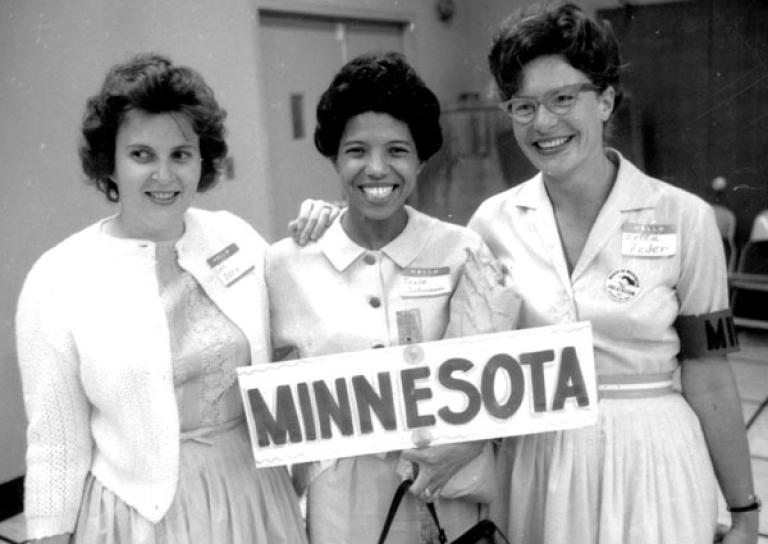
Johnson’s time in the Department of Afro-American and African Studies was short lived, but to the benefit of the U systemwide. In 1971, Minnesota Governor Wendell Anderson reached out to her to serve on the University’s Board of Regents, the first-ever Black person to do so. She served with distinction until 1973, focusing her time on student affairs, health sciences, and executive operations.
“Josie is an incredible combination of intelligence, knowledge, courage, and strength, with a heavy dose of compassion,” says Wenda Moore, who replaced Johnson on the Board of Regents as its second Black member. “That’s why Anderson thought of her immediately for the Board of Regents.”
Moore, who later became Board of Regents chair, the first Black person in that role, says Johnson helped pave the way. “She had been forthright in owning her space and she did that before I got there,” she says. “As the only person of color and one of three women out of 12, it wasn’t an easy group to get to know and sometimes to work with. The fact that Josie had been there made it easier for me.”
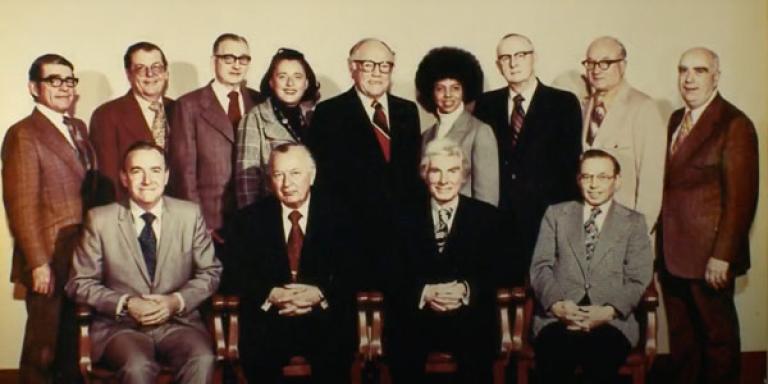
An inspirational leader
After working for a few years in Colorado and down south, Johnson, now with a doctorate in educational administration from the University of Massachusetts, returned to the University of Minnesota in 1987. She became a senior fellow at the Hubert H. Humphrey School of Public Affairs and at the College of Education. From 1990 to 1992, she was the diversity director of the All-University Forum before being named associate vice president for multicultural affairs. This was around the time when Robert Bruininks, U president and professor emeritus, had his first meeting with her. He had just been named dean of the College of Education.
“I was leading the college through a strategic planning process and we had made advancement of diversity and inclusion a core value and priority in the college plan,” he says. “Dr. Johnson was seeking to make this core University value an important aspect throughout the campuses of the University of Minnesota. I’m proud to note that Dr. Johnson made frequent reference to the college efforts in leading this priority of her office. She is truly a selfless leader.”
Bruininks says Johnson always presented herself as warm, engaged, committed, and optimistic. “Her smile and embrace of others ‘lights up the room’ and makes you want to achieve the same results in your next opportunity in engaging with others. She inspires and she is inspirational,” he says. Referencing management researcher Robert Greenleaf’s work, Bruininks believes Johnson truly encapsulates the construct of a servant leader. “Servant leaders embrace a calling to serve others beyond self, and through their example, they also inspire others to serve as servant leaders,” he says. “You see this quality in her commitments, in her mentorship of others, and the causes that have occupied her attention and her life’s commitments.”
An inspiring example of her mentorship, Bruininks notes, was the appointment of Robert Jones, who served later as a University of Minnesota Senior Vice President and now is chancellor of the University of Illinois. Jones is highly recognized in the Minneapolis-St. Paul community, state, and nationally.
Bruininks recites words from the poet Maya Angelou that he believes captures the essence of Johnson: “A great soul serves everyone all the time…It brings us together again and again.”
“Dr. Josie Johnson is a great soul that continues to remind us to work harder and together to achieve a prouder society that maximizes freedom and opportunity,” he says. “She has led and inspired the hopeful journey for freedom, justice, and opportunity.”
Tabitha Grier-Reed, CEHD’s associate dean for graduate education and faculty development, also describes Johnson by way of Angelou, as she recently picked up a book about 50 ways to spread hope, featuring the famed author. “For Josie, the political was personal, and as a Black woman, I too exist at that intersection of the personal, political, and professional,” she says. “Experiencing someone like Josie navigate these sometimes crushingly disappointing intersections with such aplomb, grace, righteous anger, fierce intelligence, fortitude, and foresight gives me hope and a powerful example to model my own spirit after.”
Grier-Reed says what she finds intriguing about Johnson is the mix of the ordinary and the extraordinary. “I knew of her before I met her. She was legendary at the U,” she says. “In many ways I experienced her as larger than life until I actually saw and met her with her diminutive stature. In person she felt so ordinary—in the best, most human, and accessible way. I think what is most unique about Josie is that powerful cocktail. The extraordinary is truly awesome, giving me the feeling that I am in the presence of greatness, but the ordinary is so accessible, giving me the feeling that I am worthy of being in the presence of greatness.”
Making a better community
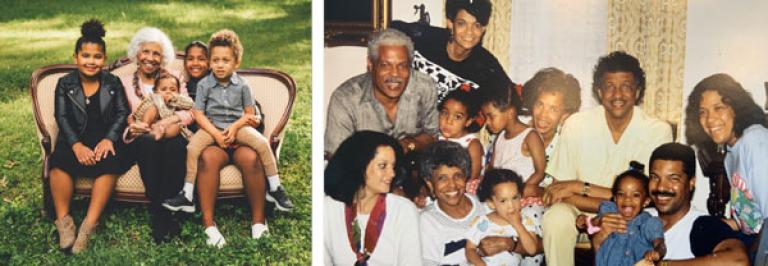
Johnson retired from the U in 1996, but her contributions remain. Through the Common Ground Consortium (CGC) in CEHD and the Josie Robinson Johnson Fellowship in the Humphrey School, she has made college education possible for many U students. Johnson founded the CGC with dean William Gardner, Professor Jean King, and nine Historically Black Colleges and Universities with support from the Bush Foundation. Since 1989, it has offered support for graduate studies. The fellowship, established in 2018, supports students who have specific interests in addressing racial inequalities and injustice.
Kania Johnson, ’21 MPP, was the first student to receive the fellowship. “It was truly an opportunity of a lifetime to allow me—a first-generation college student—to pursue my dream of making our systems supportive, inclusive, and reflective of the needs of Black, Brown, Indigenous, and other people of color,” she says. “As a result of the fellowship, I was able to pursue my passion for education and maternal health, and my search for interventions and pathways that ensure Black people and other people of color thrive.”
Kania Johnson describes Josie Johnson as a force—a true embodiment of a leader. “A leader who knows that the strength and success of a community, of a people, comes from building their capacity and supporting them to understand themselves and their potential,” she says. “When students like me receive support in the honor of someone like Dr. Johnson, that isn’t all we receive, we receive her lessons, her values, her contributions, so that we may bring them into our own hearts and apply them to the communities and things we’re passionate about. Josie’s legacy is one that gives and will continue to give. It’s truly a reflection of her.”
Honoring her legacy
To honor Johnson’s legacy, the U’s Office for Equity and Diversity established the Dr. Josie R. Johnson Human Rights and Social Justice Award to recognize faculty, staff, and students who exemplify her commitment to creating respectful and inclusive living, learning, and working environments.
Nate Whittaker, a teaching specialist in the School of Social Work, was a recipient of the award in 2013. “The award ceremony was the first time I had met Josie in person; however, I have always been familiar with her work and legacy,” he says. “It would be disingenuous if I didn’t mention my long-standing concerns about the neoliberalization of higher education; and, finding radical mentors, who have ‘walked-the-talk,’ are few and far between. Josie has been one of those principled leaders who have struggled tirelessly for the oppressed on our campus and beyond.”
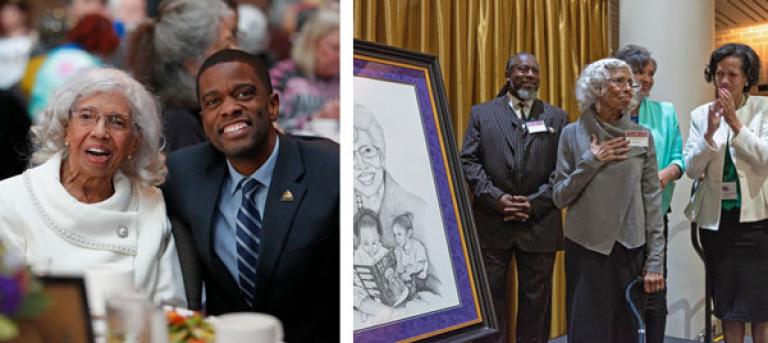
This year, Johnson received the University of Minnesota Regents Award, one of the highest honors the U bestows. The award recognizes those who demonstrate exceptionally valuable and meritorious service to the University. A special luncheon honoring her life and achievements took place at the McNamara Alumni Center in March.
The award “…acknowledges Dr. Johnson’s direct contributions to the University and society at-large, contributions that have lasted and that continue to guide the University community to never waver in establishing more just, equitable, and welcoming communities.”
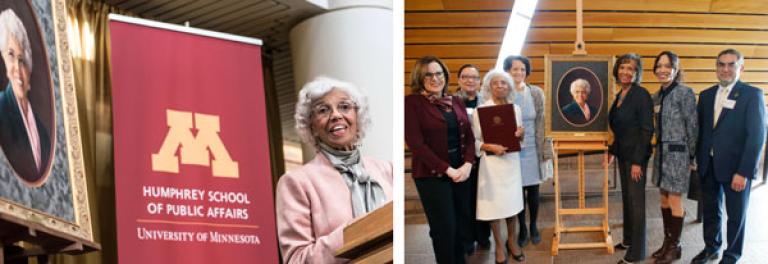
Moore says there is nobody else in the community like Johnson. “I am grateful for everything she did to make this a better community, a better Twin Cities, and a better state, not only for me and my children, but my grandchildren and everyone else,” she says. “Josie has worked for everybody, whatever color, whatever religion. She has set a standard of leadership and it’s there for all to follow.”
-KEVIN MOE